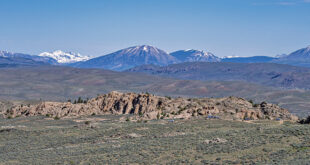It was good to see politics in action at Monday night’s Crested Butte work session. The topic was affordable housing fees. In the end the “new” council at best “tinkered” with the proposed increase in affordable housing fees suggested by the “old” council, the staff and the affordable housing subcommittee. A month from now, commercial developers will be charged $38 a square foot. A year from now it will be $63 a square foot. A year ago it was $2 a square foot. (Today it is $84 a square foot).
It’s not the fee so much as the political process that worked Monday night. A “crowd” of 22 citizens attended the work session. Eight people spoke. None of the developer types said a word in public. They had apparently talked privately and to individual council members about the “harmful impacts” of initiating such a big jump in the fees but were silent on Monday. That was disappointing. The local politicos need to hear both sides of an issue in public to make good decisions. Those who did speak advocated the higher fees and referenced not giving breaks to real estate developers.
So, in the end, the council essentially kept the affordable housing ordinance on the same track it has been on for a year. There will be a slight break for the next 12 months compared to what is coming in 2013, and developers who choose to write a check rather than build any actual units will be charged one and a half times the fee instead of two times the fee, but there you have it. The council will still debate the merits of giving a break to government and non-profit developments. But the bottom line: no major changes were made.
Now, two of the people who spoke to the council warned against using a sales tax to help fund affordable housing. Former county commissioner and town attorney Jim Starr called sales taxes regressive and not appropriate for the town funding of affordable housing. Retailer Danica Ayraud cautioned against making it more expensive for people to shop in town when other options exist. Between the town and state sales taxes, consumers already pay 8.5 percent in sales tax in her store. Danica also told the council the only way she could probably continue living in Crested Butte was through the town affordable housing program.
The council has lightly bandied about suggesting asking the voters for a .25 percent sales tax. That’s 25 cents on every $100, but no real research or serious discussion has taken place on the sales tax idea.
Jim is not wrong when he claims those who make the least pay the most in terms of a percentage of their income when paying sales tax. Danica is not wrong when she says making local books and cups of tea even slightly more expensive won’t exactly entice people to shop the local business district. But given the small percentage being talked about by the council and given the importance of the issue being claimed by proponents of affordable housing, it seems a sales tax, especially a small one, should not be dismissed without some real investigation.
Resort towns like Crested Butte are blessed that the majority of sales tax is collected from tourists and second homeowners. Crested Butte’s budget is run primarily through out-of-towners buying things. It seems to me the “regressive” nature of the sales tax is offset by the huge pool created by tourism. Those not living here pay into the general pot and those residing in the valley benefit at a significantly reduced rate of tax.
I also don’t think it unreasonable for a community to contribute to the greater good across the board. If, as many people are now claiming, affordable housing is one of the most important issues facing the town, finding a way for everyone to contribute is logical. That extends to those who hope to live in affordable housing, visitors who engage local workers and people like me who live outside the town boundaries.
The bottom line is that Crested Butte has a pretty good plan in place. Deed-restricted units exist all over town. Crested Butte is set up with raw land to address the future of local worker housing. Money is needed to fill out the infrastructure over in Paradise Park so future affordable units can be built, but having that land is priceless. Deed-restricted accessory dwellings spread the housing through the community and makes the town feel integrated and balanced, not segregated or set apart. That’s great.
The worker housing issue is a real dilemma and something the town should continue to address. Resorts are odd places where wages and housing costs just don’t sync. But you can’t just whack the developers and not expect to push up commercial rental prices and make it harder for local business start-ups. That’s just one possible unintended consequence. Restaurant expansions, for example, might become so prohibitively expensive the owners may decide to not grow the business or grow it out of town, thus losing jobs and potential revenues. That’s another possible consequence.
Affordable housing probably needs several funding sources. Just using a “stick it to the man” fee on developers is old school thinking. It can be part of the equation but let’s move from basic math and on to the beauty of algebra.
Like it or not, development is a significant contributor to jobs in the area. So development fees, a sales tax, and perhaps a property tax seem the most likely places to find money. This council is making sure significant fees are being imposed. The council should not so easily give up on the idea of looking at the other alternatives to construct a strong and balanced metaphorical stool that is affordable housing. One leg might be a sales tax to be voted on by the people. If the people don’t vote for a tiny tax increase to contribute to local housing, maybe its not as important to them as the council is being led to believe. It’s certainly worth exploring. That’s just good politics.
 The Crested Butte News Serving the Gunnison Valley since 1999
The Crested Butte News Serving the Gunnison Valley since 1999





